The Fall of the House of Usher is Mike Flanagan’s latest (and last) Netflix series. As indicated by the title, Usher explores the story of the same name by Edgar Allan Poe, but it also brings in some of his other famous (and lesser-known) works. The structure makes it so you may not recognize which story each of the episodes is referencing while watching the series. Flanagan masters the art of bringing Poe’s stories to life while making it his own with a series that is effectively scary—even for those of us familiar with Poe’s works.
But unless you’re a Poe fanatic, you might not catch all the references in The Fall of the House of Usher. We’re here to help you with a guide to each of the series’ eight episodes, the Edgar Allan Poe story it’s based on, and any other references you may have missed.
Episode 1: A Midnight Dreary
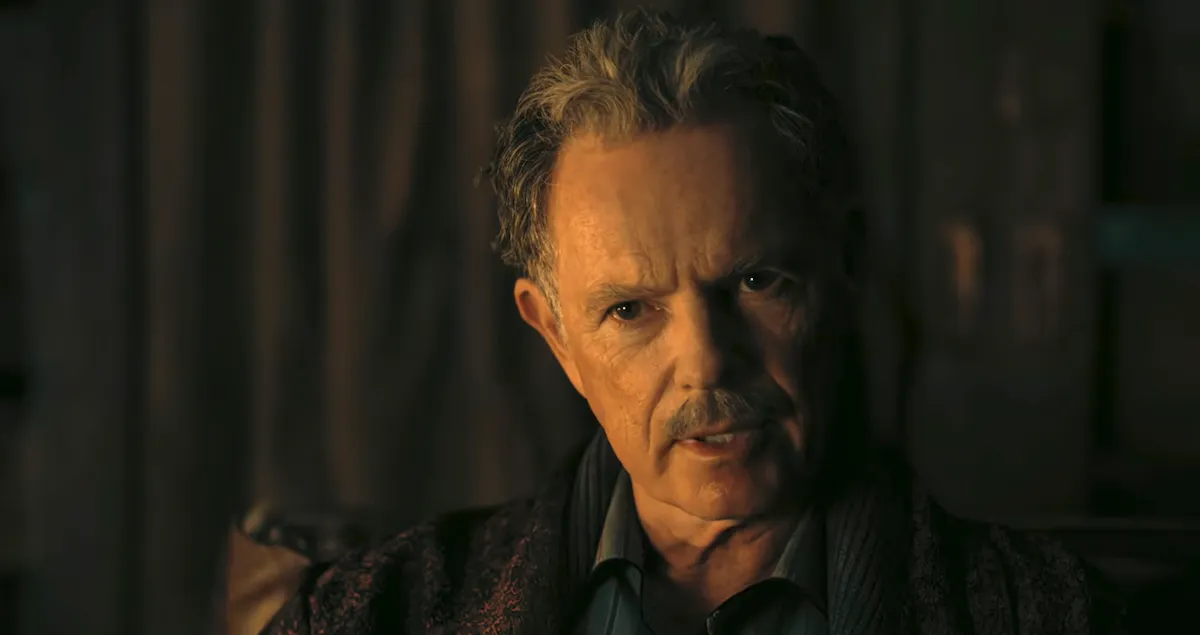
Any person who took an English course in America can probably tell you what this is—mainly because we all had to either memorize The Raven or read it every Halloween. Throughout the series, Roderick Usher (Bruce Greenwood) is haunted by the raven and its connection to the death of his children. Poe’s The Raven is about remembering, and the never-ending pain that comes with loss and grief, but those play a more important role later in the season.
There are moments in the first episode that harken to other bits of Poe’s life and work. Like “For Annie,” which as ScreenRant points out is for Poe’s late wife, as well as a nod to “A Dream Within a Dream,” another famous Poe work. The first episode itself doesn’t really have a Poe story at its core to break down outside of “A Dream Within a Dream.” The poem itself is about the melancholy of simultaneously feeling hopeful and a sense of hopelessness.
Episode 2: The Masque of the Red Death
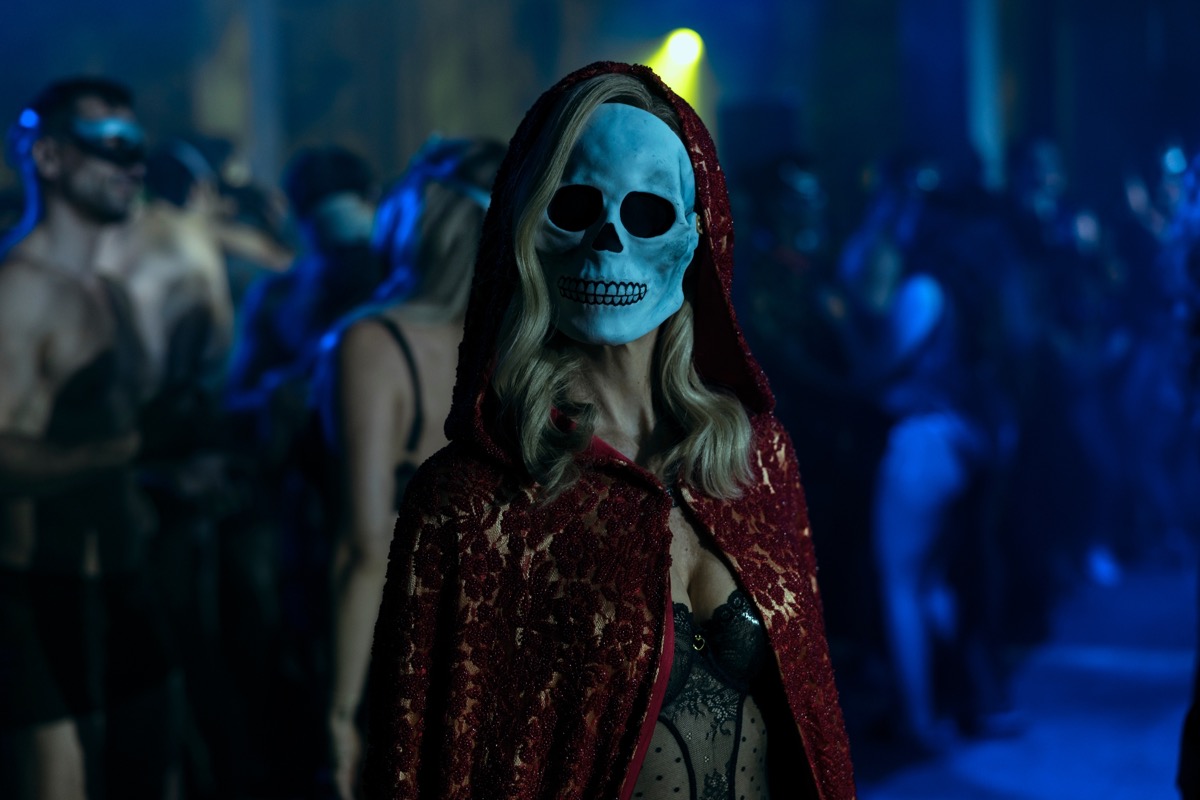
This episode really cements Flanagan’s approach to Usher, as well as where the series could be heading. All of the Usher children are named after lead characters in the Poe canon, which I first thought was simply a nod to those stories. I wasn’t prepared for them to play out on screen. The Masque of the Red Death is one of Poe’s strongest stories, yet it was often ignored in favor of his more famous works. A modern retelling of the story of Prince Prospero (Sauriyan Sapkota), the episode explores greed and lust, and what happens when these are taken from Prospero and his “friends.”
The Poe story is is simple: A red death is coming. This plague is meant to ravage everyone, and Prince Prospero plans to avoid it by hiding in his abbey away from the world. He invites those closest to him there to be safe, but the red death comes knocking at his door anyway. While The Fall of the House of Usher‘s take on the story is a bit different, it is still about Prospero waiting for his own fall and loss of power within the family.
Throughout the series, Carla Gugino’s mysterious Verna comes to visit everyone in the Usher family. In this episode, she represents the Red Death. When she appears in a red cloak, which is such a vibrant bit of imagery in Poe’s work and one that really stuck with me as a teenager, I knew just how deep Flanagan’s dive into Poe would be. The idea of the short story is that humans cannot escape death, no matter how hard we may try, and that’s a theme present throughout the show as well. The young Prospero is the first of Roderick’s children to die. He is the first to lose his life because of Verna’s promise, and delivers this message to Roderick as clear as can be.
Episode 3: Murder in the Rue Morgue
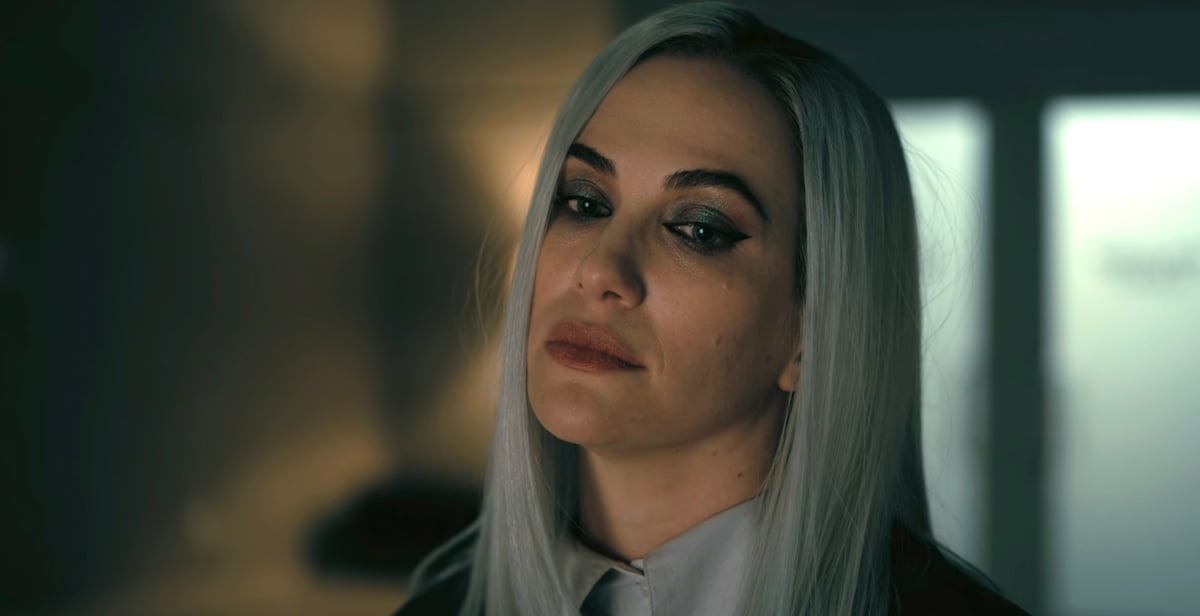
This is when we get into Poe stories that are a little less well-known. The Murder in Rue Morgue has a fascinating place in Poe’s work. Mainly because it is credited as the first modern detective story, giving us tropes that would appear in the works of Sherlock Holmes and in the detective stories of Hercule Poirot. The Murder in Rue Morgue is fascinating to look at alongside Poe’s body of work.
Poe’s tale is very much a detective story. The narrator meets a detective by the name of C. Auguste Dupin (who is featured in the show as well). They’re investigating the brutal death of two women and throughout the investigation, they talk to witnesses who cannot seem to identify the language spoken by the murderer in question. There is hair found at the scene of the crime that doesn’t appear to be human and through their detective skills, they realize that this crime was not committed by humans at all. One of the victims in the short story is named Camille.
Episode 3 follows a similar detective pattern. Camille (Kate Siegel) is trying to figure out what is happening in a lab run by her sister, Victorine (T’Nia Miller). She’s using her status and skills to get into the building so she can see what is going on for herself. Camille’s encounter with Verna quickly becomes the story of Rue Morgue, as Verna takes the form of one of the chimpanzees being experimented on and mauls Camille to death.
It’s brutal and quick, while still giving us a detective story. All of this makes it one of the more intriguing inclusions in the series.
Episode 4: The Black Cat
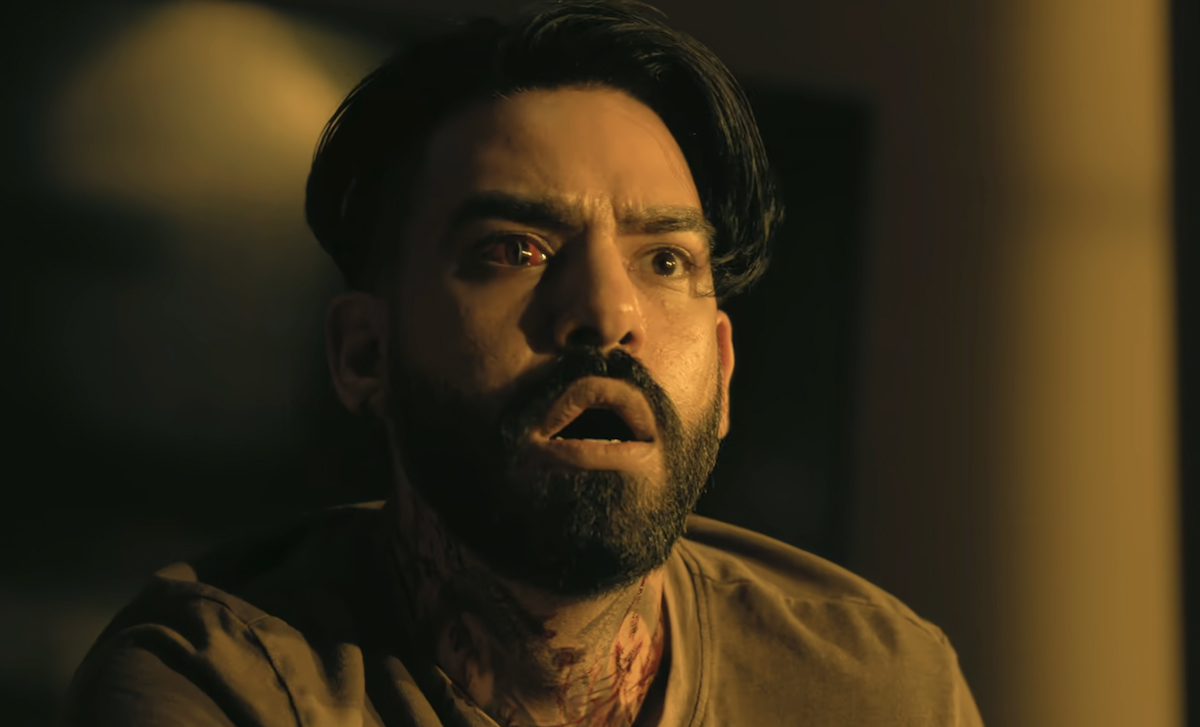
Another lesser-known Poe story, The Black Cat might not be for you if you have a cat. Or at least if you plan to lie about your cat any time soon. While the Poe story isn’t necessarily about the importance of the cat itself, the episode does have weight behind it because of Napoleon Usher’s (Rahul Kohli) lie. Julius (Daniel Jun) Napoleon’s boyfriend and puts up with a lot from him, but he also loves their cat Pluto very much. When the cat is killed by Napoleon in a drunk and drugged out haze, he goes out of his way to bring a new black cat into their home despite the woman at the shelter telling him he cannot have the cat in question.
The woman is obviously Verna, who is taking out the Usher children one by one.
In Poe’s The Black Cat, the narrator loves his cat Pluto. But when he loses himself to violence and alcoholism, he cuts out the cat’s eye and hangs the cat. In an attempt to replace the cat for himself and his wife, he finds another one-eyed cat and adopts it. But the new cat brings torment to our narrator and his family. The narrator eventually kills his wife, concealing her in a wall, and the new cat outs him for his crime. (Honestly, good cat.)
The story as Poe intended is about the “obscurity” of every human being. You can have an ethical standing in the world, or you can be someone who only stands for themselves, and the black cat will find you and tear you down, as it does Napoleon.
Napoleon’s name is also a specific reference. His name doesn’t come from The Black Cat, but rather from The Spectacles. The character in that story is named Napoleon Bonaparte Froissart, and he changes his name to inherit money from a distant cousin. Too vain to wear glasses, he goes to the opera and falls in love with a “beautiful” woman, only to discover it is his own great-great grandmother.
Episode 5: The Tell-Tale Heart
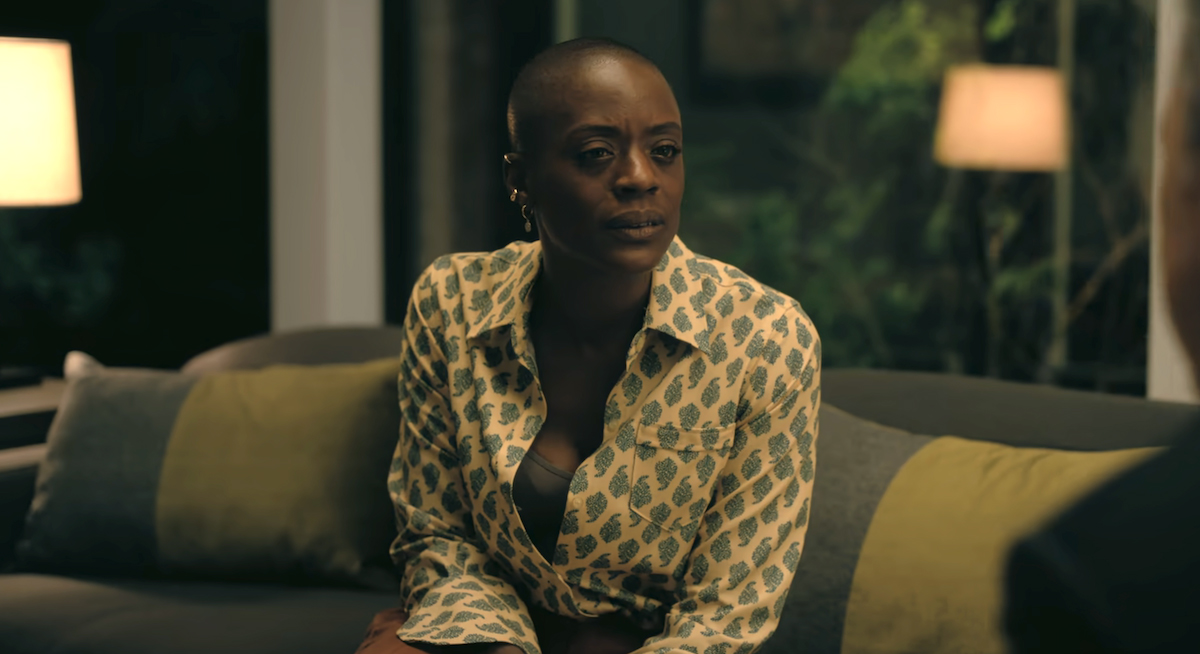
The beating that just won’t stop! Outside of The Raven, this is probably one of Poe’s most well-known works. The story is about someone so overcome with guilt that they reveal to the world everything they’ve done wrong. It’s about the reality of their actions driving them to the brink of insanity and consuming them. In The Fall of the House of Usher, the story belongs to Victorine Usher (T’Nia Miller). The genius child of Roderick Usher, Victorine uses her gifts in medicine and science to conduct research meant to help further the family business. But Victorine takes her work too far. When an accident drives Victorine mad, the steady beating of her lover’s heart is what ultimately takes Roderick’s daughter from him.
Verna appears this time around as a patient, the first participant in a human trial that Victorine should have never undertaken. But she’s cocky and does so to prove a point, and when it all falls apart, Victorine’s partner Alessandra (Paola Núñez) takes the brunt of it. This story is about the way guilt ruins you. It happens to Poe’s narrator, and it happens to Victorine.
The Tell-Tale Heart is about justifying one’s evil deeds and what happens when that doesn’t clear you of the guilt. In the story, the narrator spends over a week trying to justify the murder of an old man with a pale blue eye. The minute he does it, the beating of the man’s heart consumes him; the sound of his crime follows him, as it does with Victorine, who hears Alessandra’s heart beating everywhere she goes.
Episode 6: Goldbug

Tamerlane Usher (Samantha Sloyan) is far from okay throughout the series. Poe’s Goldbug highlights wealth and growth, but Tamerlane almost never grows. In episode 6, Goldbug is the name of the company that Tamerlane is starting with her lifestyle brand. A woman who has no real human connection in her life, Tamerlane is breaking slowly but surely, stifled by her own wealth and seeing Verna at every turn.
Verna appears to Tamerlane as a sex worker she hires to come and play the part of doting wife to her husband when she can’t fulfill her own sexual needs—or her husband’s emotional ones. Tamerlane fully breaks in her own home, seeing Verna in every mirror. The Goldbug aspect of the story is that Tamerlane’s obsession with money and wealth overpowered her need to get help.
In the short story The Gold-Bug, William Legrand finds a scarab-like bug figure that is gold. He moves to South Carolina with his servant, Jupiter, and begins to believe that the scarab will bring back the fortune that he lost. It doesn’t directly connect to Tamerlane’s story, but it does fit with what her company is selling as its “lifestyle” brand.
Episode 7: The Pit and the Pendulum
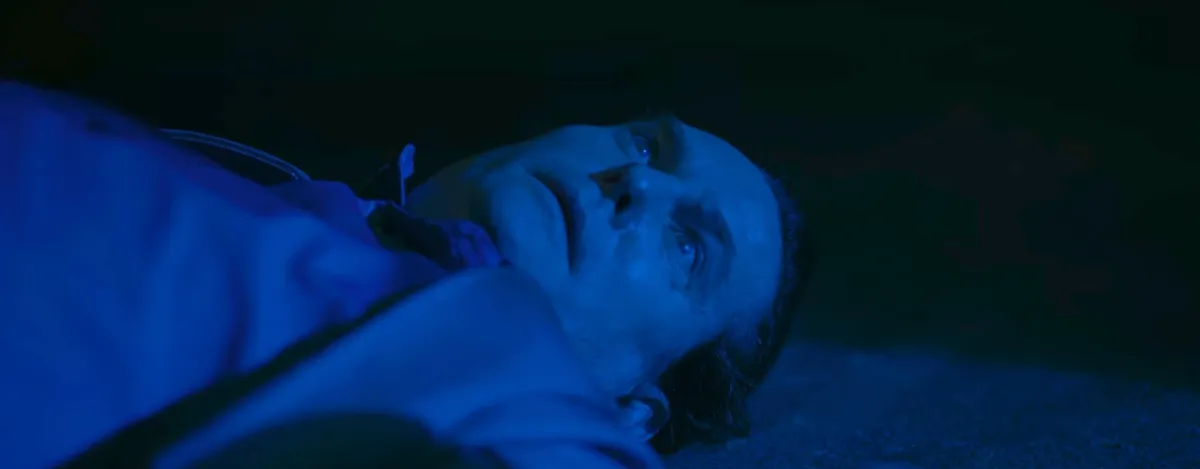
This is one of those stories that you don’t really want to read because it will gross you out, and boy, does Flanagan do just that! The Pit and the Pendulum is a story about accepting that you’re going to die. You basically have no choice in the matter; the victim is going to die and that is that. That’s what happens with Frederick Usher (Henry Thomas) after he becomes the villain in his own family’s story. When his wife Morelle (Crystal Balint) attends Prospero’s elite orgy, she becomes the only survivor of the party’s horrific climax. Burnt by the acid that fell from the water sprinklers, she needs serious medical help, but Frederick instead decides to make Morelle’s life miserable. Frederick begins torturing her to teach her a “lesson” for betraying him.
Verna uses that against Frederick by trapping him in the same space that killed Prospero while a crew waits outside with equipment ready to demolish the building. Slowly he watches as the pendulum swings, closing in on him without the ability to move, paralyzed by the drugs he used on his wife. That all-consuming fear, knowing that death is inevitable? Frederick, the last of the Usher children, gets the worst death of them all (for me, anyway).
The Pit and the Pendulum has more history in it than The Fall of the House of Usher adaptation. In Poe’s telling, the narrator is put on trial by Spanish Inquisitors for an unnamed crime. When he is found guilty, they put him in a room with a razor-edged pendulum, counting down his final moments “one foot from horn to horn.” Unlike Frederick, the narrator is saved in the final moments by the French, right as the pendulum is about to cut his chest. This story is often taught in school during Poe sections, so just let that sink in for a moment.
Episode 8: The Raven
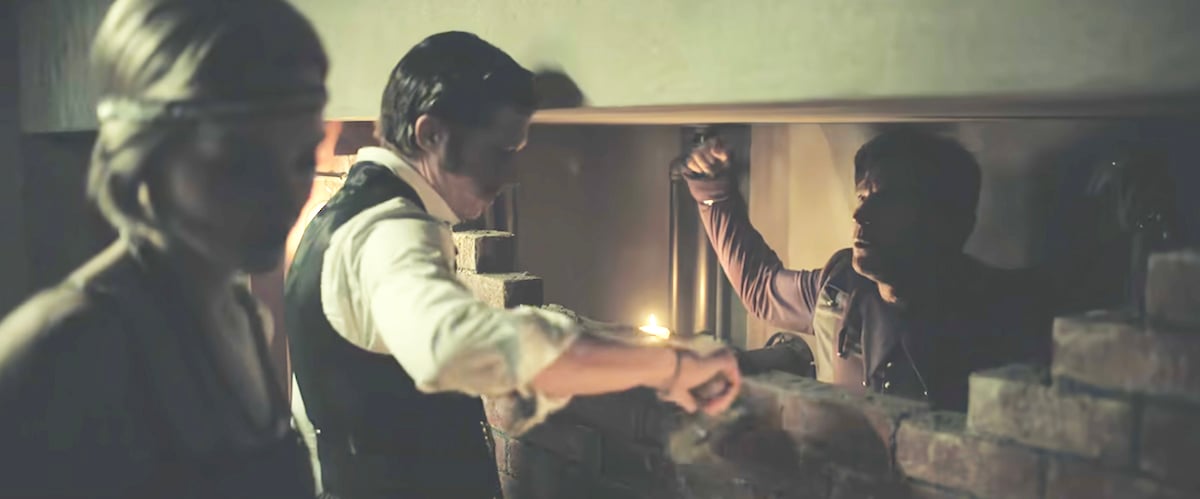
And finally, quoth the Raven, we’ve come to the most famous work of all. As I said before, everyone knows The Raven. This episode ties up a lot of loose ends, explaining Verna to Roderick and his sister Madeline (Mary McDonnell), while Arthur Pym (Mark Hamill) is asked to clean up one final mess for the Usher family. All of this is told to C. Auguste Dupin (who is important in multiple Poe stories and is played here by Carl Lumbly), just as the narrator is told about the death of Roderick’s family in the original Usher short story.
This episode also calls back to one of my favorite stories by Poe: The Cask of Amontillado. Instead of working with Dupin to blow the whistle on the pharmaceutical company where he works, young Roderick (Zach Gilford) has another plan. He lures his boss Rufus down to a basement and begins burying him alive with the help of his sister Madeline (played in flashbacks by Willa Fitzgerald) in a move to take over the company. Roderick and Madeline are slowly just tormenting Rufus as they do so. To keep their secret safe, Verna offers them a life of success and happiness with one catch: the Usher line dies with them. At the time, Roderick already had Frederick and Tamerlane with his first wife, Annabel Lee (named after Poe’s final poem). They accept the offer.
The Raven is about the loss of love—specifically the narrator’s love of Lenore. Unpacking his own grief and death with the imagery of the raven, the story tells us to try and overcome our grief and move on, but the narrator cannot seem to do so.
What makes this episode so cool is that it also features Lenore (Kyleigh Curran), taken from another short story of Poe’s that is infamous for its depiction of grief—something that comes into play when the twist of Verna’s offer to Roderick and Madeline is revealed. Overall, The Fall of the House of Usher does an incredible job of including nods to Edgar Allan Poe that established fans will appreciate while also incorporating short stories that are lesser-known, and that’s part of what makes it such a fascinating series.
Any easter eggs that you loved in the show? Let us know your favorite in the comments below!
(featured image: Netflix)



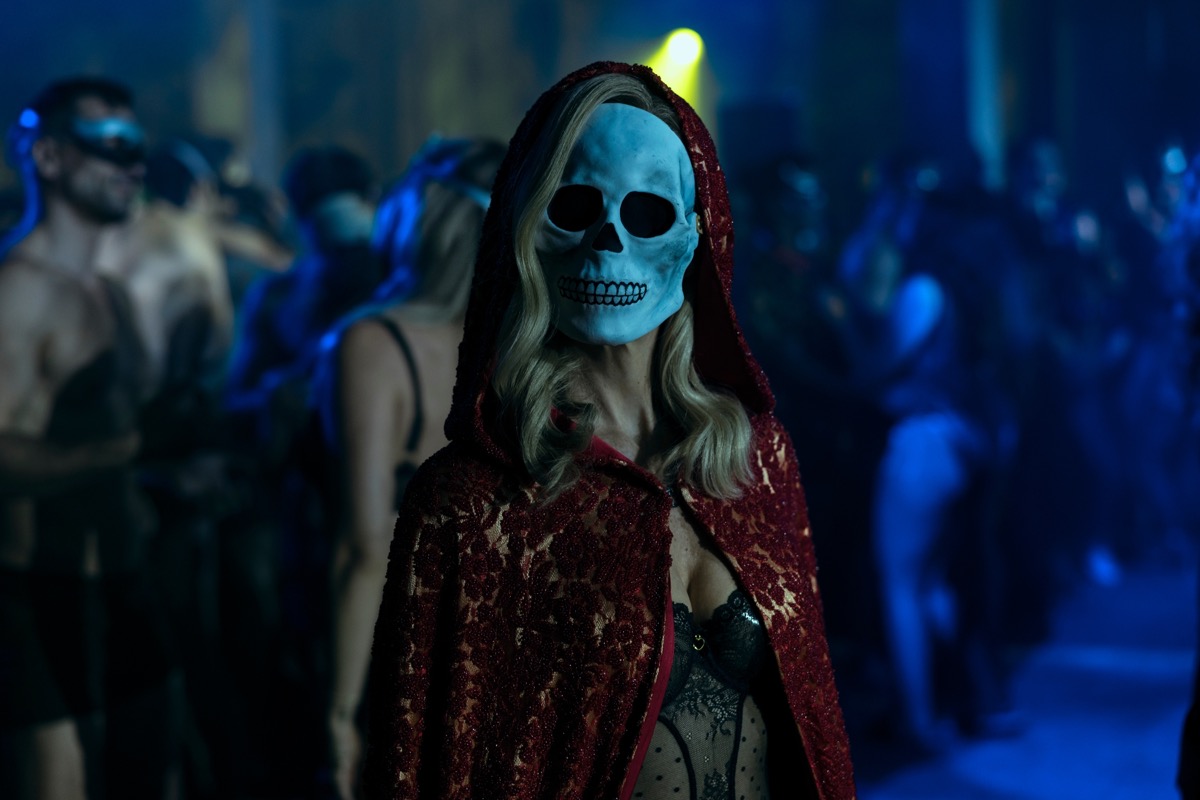






Published: Oct 17, 2023 12:04 pm